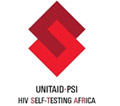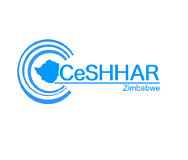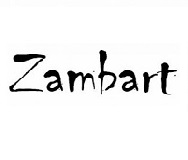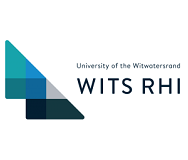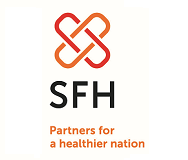HIV STAR Malawi Key Populations study: A Rapid Ethnographic Assessment among Female Sex Workers
By Mr. Mwiza Sambo
What kind of assessment can be carried out to ensure the design of an effective peer-led HIV self-testing (HIVST) delivery model among Female Sex Workers (FSWs)?
Rapid Ethnographic Assessments (REA) were conducted in three districts in the Southern part of Malawi: Mulanje, Chikhwawa and Blantyre. We used REA, due to this being a method that quickly and efficiently gathers ethnographic data collected using triangulation of different qualitative and quantitative approaches. In this case we used a qualitative approach of observations and in-depth interviews. The purpose of conducting REA was twofold:
1) to identify establishments and locations where female sex workers (FSWs) operate from to gain a deeper understanding of their everyday life conditions;
2) to use the knowledge gained to inform the development of a contextually relevant HIV self-testing strategy delivered by peer distributors, to be implemented by Pakachere.
Packachere is one of the leading locally registered non-governmental organisations that specialises in social and behavior change communication. Pakachere has been sub contracted by PSI Malawi to carry out implementation work among FSWs.
Data was collected by trained social scientists from Malawi-Liverpool Wellcome trust, namely Mwiza Sambo, Wezzie Lora, Wakumanya Sibande and Lusungu Kayira.
Prior to REA, researchers conducted stakeholder meetings and a mapping exercise. Stakeholders, which included Pakachere and district health officials working with FSWs, were engaged to provide information on the existing HIV testing services for FSWs and also information on the establishments and locations where FSWs hang out. Researchers used this information to follow up with venue owners. A mapping exercise was carried out to identify additional establishments and locations that were not mentioned/identified by stakeholders.
Sampling of venues in the three districts was conducted to reach out to most townships/ locations across a district. Two or three venues were selected per township. These venues were viewed as representative of the entire township, based on an assumption that most of the FSWs operating within the township would alternate around the same venues depending on their class and charging rates. Venues were of different classes and so were the FSWs. FSWs of a higher class would converge in venues where services were sold at a higher price, hence they charged higher prices for sex work based on the assumption that customers found in those venues would meet their charges. The same applied to FSWs of a lower class, who charged low prices for sex work because they were operating from low class venues.
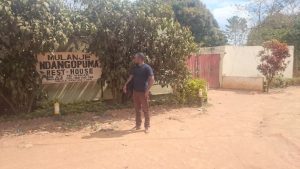
Figure 1: MLW Research Assistant standing outside a venue in Mulanje
Venue owners were approached and asked for written consent to conduct in-depth interviews and REA participant observations. In-depth interviews were then conducted with the venue owners to gain insights of the nature of female sex work in their venues. In instances where venue owners were not equipped with enough information, we interviewed venue staff e.g. barmen, guards, waiters, landlords and bar owners who had some form of authority and insight into activities of the FSWs operating within the vicinity or inside the venue. Venues were receptive of FSWs and had established a good working relationship with them, since their presence was perceived to attract customers for both the venue and the FSWs.
Data collected from venue owners centered on FSWs and we captured information around: FSW daily activities; sex work in relation to the venue; interpersonal relationships at the venue; staff/venue owners’ perceptions on HIVST and how best HIVST kits can be distributed among FSWs.
In terms of participant observations, we documented how FSWs conducted negotiation and sex work while paying a greater attention to their normative social conditions, personal behaviors and interpersonal relationships. Shebeens, pubs, bottle stores, lodges, rest houses, clubs, motels and brothels were all included. Peak days for sex work were weekends of month ends when people had received their wages, and on market days when people from surrounding districts would patronise the facilities after buying or selling goods. Some venues attracted more customers by holding special events during weekdays or weekends e.g. live bands and live performances from artists.
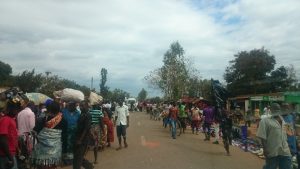
Figure 2: Market day in Mulanje – peak day for sex work in surrounding venues
We also conducted in-depth interviews with FSWs themselves by strategically selecting FSWs across all locations in a district with the inclusion of all types of FSWs, and these included home and street based as well as venue based. Venue owners were used as key informants to link us with FSWs. Where it was difficult to find FSWs, especially street and home based, we used snowball sampling through other FSWs as key informants.
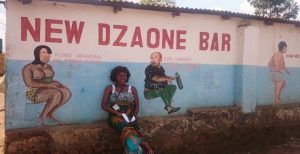
Figure 3: MLWT research assistant posing for a picture outside a bar in Blantyre after carrying out an in-depth interview
During in-depth interviews with FSWs, we were interested in sex work orientation, normative social conditions, interpersonal relationships, individual behaviors, issues on HIV testing and HIVST from the viewpoint of a FSW. It was noted that most FSWs have come to accept their identity. Most FSWs freely and openly discussed sensitive subjects after assuring them about confidentiality during informed consenting. One FSW was quoted saying ‘if you are not on ART, you are not in fashion’. This further enhanced openness on discussions around HIV testing services in FSWs.
At the end of the REA exercise, a prototype peer distribution model was developed by the social science team based on the REA information. The model was designed to apply to both urban and rural settings. It was later validated at a workshop that was conducted in Blantyre.

